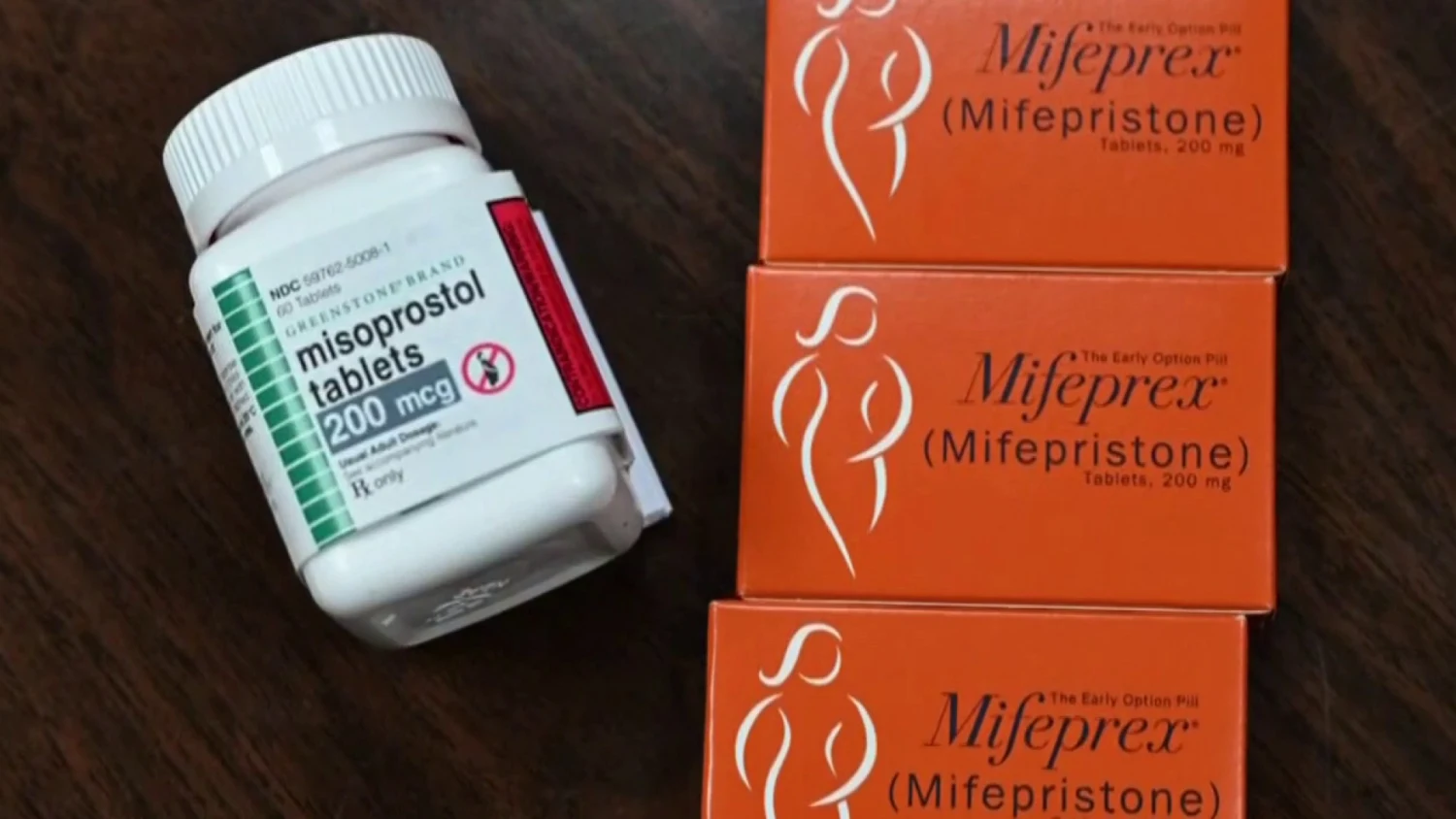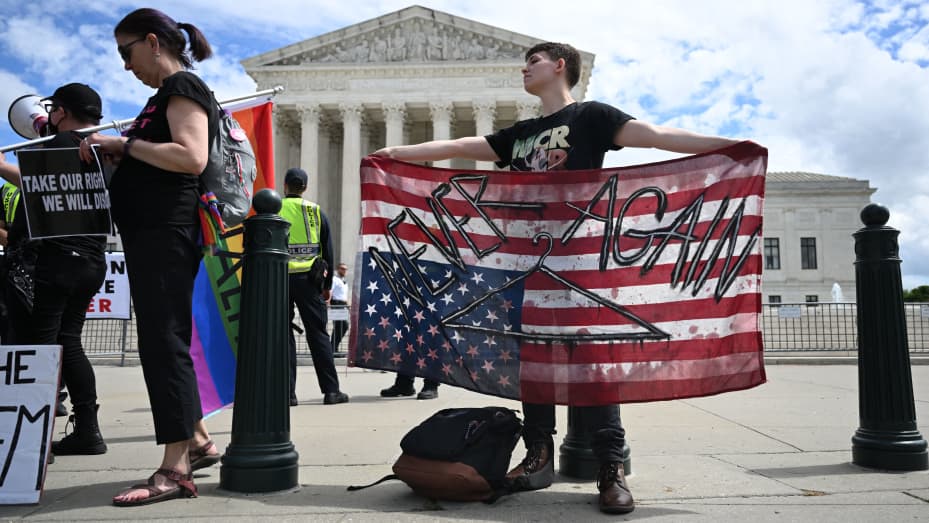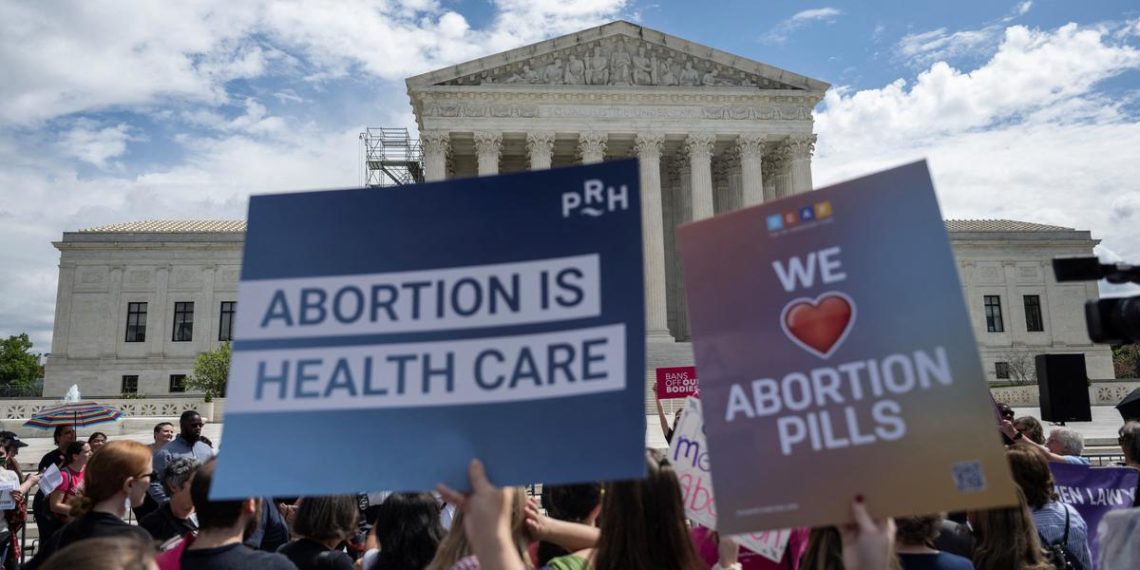The U.S. Supreme Court heard arguments regarding the regulation of the abortion pill, indicating skepticism towards the plaintiffs’ legal standing to challenge FDA actions.
The case, involving President Biden’s administration, revolves around restrictions on mifepristone‘s prescription and distribution, renewing debates on reproductive rights amid an election year.
The FDA’s measures, allowing for extended medication abortion timelines and mail delivery without in-person clinician visits, face scrutiny.

Plaintiffs, anti-abortion groups, and doctors argue potential ethical conflicts due to the drug’s use. However, Solicitor General Elizabeth Prelogar emphasized the absence of imminent legal injury, challenging the plaintiffs’ standing.
Conservative justices probed existing federal protections safeguarding medical personnel from participating in abortions against their will.
They questioned the necessity of legal action given these protections. Liberal justices highlighted the disconnect between plaintiffs’ concerns and the lawsuit’s broader implications.
The Supreme Court’s conservative majority, reshaped in recent years, underscores the case’s significance. Justice Samuel Alito’s inquiry into potential legal avenues underscored complexities in challenging FDA decisions.

Despite plaintiffs’ objections, the FDA defends mifepristone’s safety and efficacy, citing extensive research. The case’s outcome could shape reproductive healthcare access, especially in conservative-leaning states.
The lawsuit’s history, tracing back to the FDA’s approval of mifepristone, underscores its enduring legal implications. As the court deliberates, abortion remains a focal point in U.S. politics, with implications for the upcoming elections.
The decision, expected by June’s end, holds profound consequences for abortion rights and regulatory oversight, setting precedents for future FDA actions and legal challenges.





